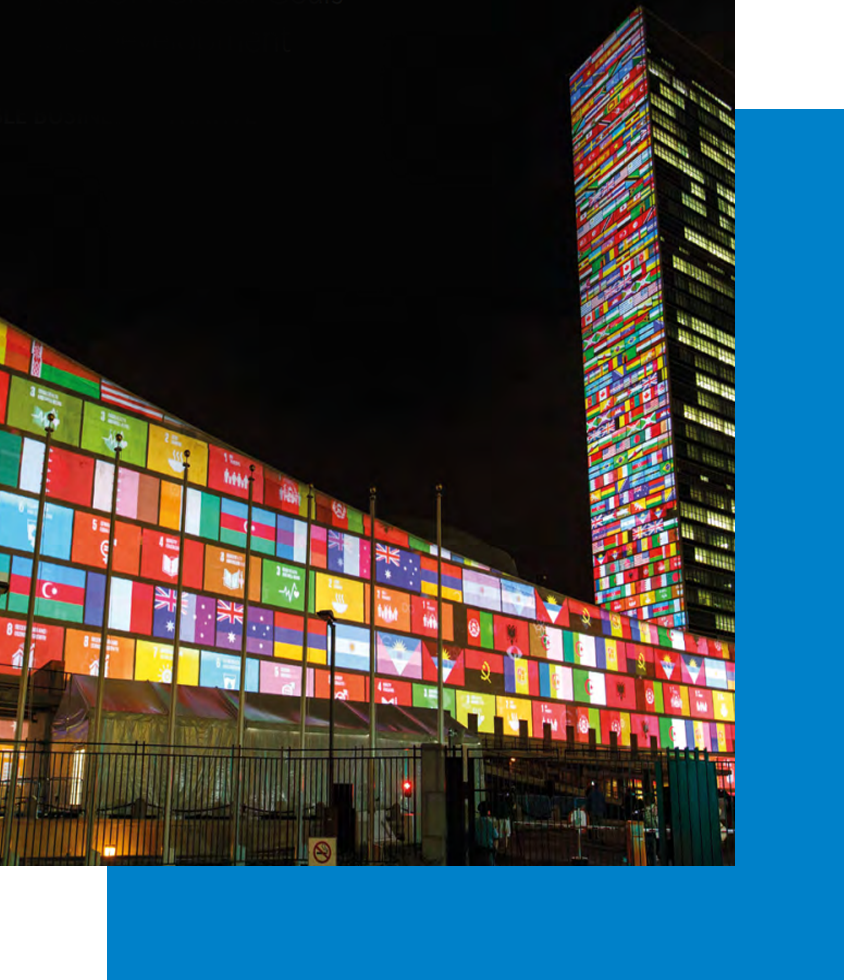- Members
- Global S W Docs
- Newsletter
- News
- Regions
- About Us
- Committees
The International Association of Schools of Social Work (IASSW), an NGO in consultative status with ECOSOC, welcomes the advent of the Sustainable Development Goals and the considerable improvements reflected in comparison to the MDGs. We especially applaud the continued emphasis on poverty eradication, inclusion of a goal to reduce inequality, and attention to achieving gender equality.

We endorse the emphasis on environment and sustainability. We are concerned, however, that the Open Working Group Outcome document on the Proposed Sustainable Development Goals (SDGs) is surprisingly muted, indeed almost silent, on human rights. Although there is weak acknowledgment of human rights in the chapeau, the SDGs do not mention rights, and there is only sparse rights language in the targets enumerated in the document. This is particularly disappointing after the High Level Panel identified ensuring universal human rights as a component of the five transformational shifts it recommended. As Special Rapporteur on Extreme Poverty and Human Rights Philip Alston said, “the results to date are stunningly meagre. Human rights as such have been thoroughly marginalized. “
The global profession of social work is committed to advancing human rights for all people. Our Statement of Ethical Principles and Global Standards for Education and Training of the Social Work Profession are grounded in human rights principles. Furthermore, the profession’s Global Agenda for action urges universal implementation of the core human rights treaties of the United Nations.
In the Declaration on the Right to Development, adopted by the UN General Assembly in 1986, Article 1 explicitly recognized the link between rights and development: “1. The right to development is an inalienable human right by virtue of which every human person and all peoples are entitled to participate in, contribute to, and enjoy economic, social, cultural and political development, in which all human rights and fundamental freedoms can be fully realized.” The Declaration called on states to “take steps to eliminate obstacles to development resulting from failure to observe civil and political rights, as well as economic, social and cultural rights.” In the decades since 1986, governments have made important commitments to protect and fulfill rights through ratification and implementation of important core treaties that address the issues of the SDGs. Through failing to recognize and reinforce the extensive human rights commitments already agreed by member states, the Outcome Document diminishes the important work and remarkable achievements of the United Nations and member states in human rights. The post-2015 Agenda will be strengthened with robust linking of human rights and a right-based approach to poverty eradication and other development goals.
This is more than a simple matter of language. As Special Rapporteur on Extreme Poverty and Human Rights, Philip Alston, stated in his report to the 69th session of the General Assembly, “The use of human rights language does matter.” He further asked whether “governments and the international community are intentionally avoiding the language of human rights in the context of development debates…precisely in order to avoid all of the positive consequences of using human rights language.” There are obvious opportunities to move to a rights-based approach by replacing the word “access to” with “right to” in many of the draft SDGs. This change would underscore the recognition of human dignity and links the SDGs to the human rights machinery of the UN as an important contributor to accountability for results.
The International Association of Schools of Social Work:
In closing, we congratulate the Open Working Group and the co-chairs for the extensive work to date and look forward to continuing involvement as members of civil society in shaping, implementing and monitoring the post 2015 Agenda. We encourage governments and the General Assembly to ensure that the upcoming negotiations result in the “far-reaching vision of the future firmly anchored in human rights” called for by the Secretary General (2013).
References:
Alston, Philip (2014). Report of the Special Rapporteur on Extreme Poverty and Human Rights to the 69 session of the United Nations General Assembly (GA A/69-297, August 2014)
United Nations (2013) ‘A New Global Partnership: Eradicate Poverty and Transform Economies Through Sustainable Development’. The Report of the High-Level Panel of Eminent Persons on the Post-2015 Development Agenda, 31 May.
United Nations, 1986, Declaration on the Right to Development
United Nations, 2013. Report of the Secretary General for the 68th session of the UN General Assembly, A life of dignity for all: accelerating progress towards the Millennium Development Goals and advancing the United Nations development agenda beyond 2015.
The International Association Of Schools Of Social Work
Est. 1928